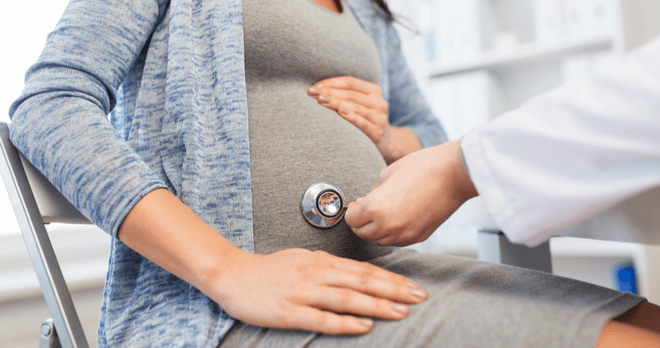The Birth Trauma Inquiry Report – one year on.

The Birth Trauma Inquiry report, led by MPs Theo Clarke and Rosie Duffield, aimed to investigate the prevalence, causes and impacts of traumatic birth experiences in the UK. By gathering evidence from over 1,300 women and nearly 100 maternity professionals, the inquiry sought to provide evidence-based recommendations to improve maternity care.
One year on, we look at what progress has been made since the report and what more needs to be done.
The report's recommendations
The Report’s 12 key recommendations, in brief, included:
- improved and mandatory training on trauma-informed care,
- providing universal access to specialist maternal mental health services across the UK to end the postcode lottery,
- digitising mother’s health records to improve communication between primary and secondary health care pathways (including the integration of different IT systems to ensure notes are always shared),
- ensuring better education and respect for women on birth choices,
- ensuring a commitment to tackling inequalities in maternity care among ethnic minorities, particularly Black and Asian women; and
- rolling out and implementing the OASI (Obstetric Anal Sphincter Injury) Care Bundle to all Hospital Trusts, amongst other recommendations.
Implementation of the recommendations
In response to the report, the Department of Health and Social Care acknowledged the report’s findings and pledged to support improvements, including training and more midwives.
The then women’s health minister, Maria Caulfield, apologised to affected mothers and emphasised that maternity services had not been at the desired standard and reaffirmed the government’s commitment to making maternity care a priority within the women’s health strategy. However, since the publication of the Birth Trauma Inquiry Report, while there have been developments in policies, practices, and attitudes within Trusts there appears to be a lack of engagement from the government.
Fortunately, since the report’s publication there has been:-
Improved Mental Health Support
One of the most immediate and tangible changes following the report has been the heightened focus on mental health support for individuals affected by birth trauma.
In response to the report’s recommendations, healthcare systems have increasingly integrated dedicated mental health services within maternity care. This includes the establishment of trauma-informed counselling services designed to help individuals process both the physical and emotional aftermath of a challenging birth. Several hospitals have also implemented more comprehensive postpartum mental health assessments and counselling, with the goal of addressing trauma early and preventing the development of more severe psychological conditions, such as post-traumatic stress disorder (PTSD).
Enhanced training
In line with the inquiry’s recommendation to improve healthcare professionals’ training, many healthcare systems have made significant improvements in ensuring that healthcare professionals are better equipped to prevent, identify and respond to, birth trauma. This training places a stronger emphasis on patient-focused communication, ensuring that healthcare professionals are aware of the emotional and psychological needs of patients, particularly in traumatic births.
Several NHS Trusts (including East Lancashire NHS Trust and Liverpool’s Women’s NHS Trust) have enhanced their training further by participating in a pilot program aimed at improving maternity outcomes for women and babies, by enhancing the skills of their maternity staff and improving patient safety during obstetric emergencies.
These changes reflect a demonstration of commitment across NHS Trusts to implement mandatory training and improve care related to birth trauma. However, the specific implementation of these training programs does vary across the different NHS Trusts and it seems likely that this will continue until there is more engagement from the government in implementing the report’s recommendations.
Improved reporting and data collection
In response to the recommendation to address accountability, healthcare institutions have begun adopting better reporting and data collection systems. These new systems are designed to capture and track incidents of birth trauma more effectively, ensuring that cases are documented in a way that can inform future improvements in care.
Policy adjustments in postpartum care
Following the Birth Trauma Inquiry and as part of efforts to improve maternity care, the NHS introduced dedicated GP appointments for mothers six to eight weeks postpartum. These appointments are now specifically focussed on the physical and emotional recovery of mothers, providing dedicated time and space to address and discuss any health concerns following childbirth. This allows for any complications, both physical and mental, to be identified early.
This marks a significant advancement towards improving the accessibility of postpartum care, ensuring that mothers receive the comprehensive support they need during this critical recovery period.
Additionally, there has been a push to improve the accessibility of follow-up care, ensuring that new parents have clear and easily accessible pathways to support even after leaving the hospital. This also includes ensuring that care is sensitive to diverse patient needs, particularly in marginalized communities.
OASI (Obstetric Anal Sphincter Injury) Care Bundle
The Royal College of Obstetricians and Gynaecologists (RCOG) has supported the Inquiry’s recommendation that there should be a national rollout of the OASI care bundle, emphasising it’s potential to improve maternal health outcomes.
A study published in December 2024 in the British Journal of Obstetrics and Gynaecology (BJOG) explored women’s experiences with the OASI care bundle. The findings indicated that most women found the interventions acceptable and valued receiving information about perineal health during pregnancy.
Despite this support, progress seems to be hampered by the fact the government has not committed to the recommendations of the Inquiry report and the implementation of the OASI bundle.
More widespread patient-centred approach
Another significant shift in NHS Trusts following the Inquiry has been the growing adoption of a more patient-centred approach within maternity care. This shift has led to greater efforts to involve parents in decision-making, such as providing choices during childbirth and ensuring that mothers and families are fully informed about the risks and benefits of various options. Hospitals are also beginning to offer more flexible birthing plans that respect patients’ preferences, within medical guidelines, which helps reduce the likelihood of a traumatic experience.
What still needs to be done following the Birth Trauma Inquiry?
While the changes we have seen are a step forward, the implementation of the 12 recommendations has been uneven across regions, with some hospitals still facing resource constraints.
While certain Trusts have made substantial improvements, others are lagging behind in areas such as trauma-informed care, staff training, and postnatal support. To ensure sustained progress, a more cohesive and consistent approach is needed across all NHS Trusts and this needs to be driven by the government.
There are also several key areas that still require attention and improvement to ensure a more comprehensive, effective response to birth trauma and its long-term effects on families, including;
- analysis of data to identify patterns and areas of improvement,
- greater support for Fathers and Partners to support them through birth trauma,
- continuous professional development for all healthcare workers involved in maternity services to ensure that all healthcare providers are equipped with the latest knowledge and skills to support patients through trauma-sensitive care; and
- implementing stronger communication protocols to ensure that mothers and families fully understand their options and are appropriately supported throughout their care and choices.
More support is needed to ensure better education and respect for women on birth choices, and to tackle inequalities in maternity care among ethnic minorities, particularly Black and Asian women across all aspects of maternity services.
Individual NHS Trusts and organisations like the RCOG cannot do this without full commitment from the government. It is disappointing that Wes Streeting has not outlined the governments support for the Inquiries recommendations. Without such support, it is difficult to envisage the recommendations being implemented across the country.
Overall there is a pressing need for more MPs to become involved with the All-Party Parliamentary Group, and the appointment of a Maternity Commissioner would go some way to ensuring the government takes on more direct accountability for the maternity crisis.
A concerted, multi-level effort across the entire healthcare system is essential to address these gaps and guarantee that families receive the highest quality of care following birth trauma.
We spoke with Wera Hobhouse, Liberal Democrat MP, about how she sees progress after the Birth Trauma Inquiry:
“Trauma from birth can have significant long-lasting consequences for both the mother and the newborn child.
“While it is encouraging to see that there has been improved mental health support for mothers and those affected by birth trauma, this support should be properly implemented nation-wide.
“Last year, 41% of the NHS’s total clinical negligence payments related to maternity care. We must address the ‘postcode lottery’ of maternity services and ensure that every woman who is giving birth can expect the highest standards of safety, professionalism, care and respect.
“It is clear that we need a cross-Government target and strategy, led by the Department of Health and Social Care, for eliminating maternal health disparities. The UK can and should strive to be the safest place in the world to have a baby.”
Our specialist maternal birth injury solicitors are here for you when you’ve suffered injury as a result of negligent care during a birth. Contact our enquiries team today to find out how we can help.
Call now
More insights from our birth injury experts and across our Injury team.
View more articles related to Maternal injury and Team Around the Client




